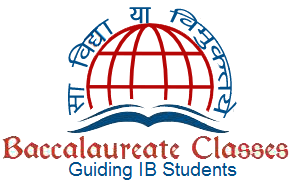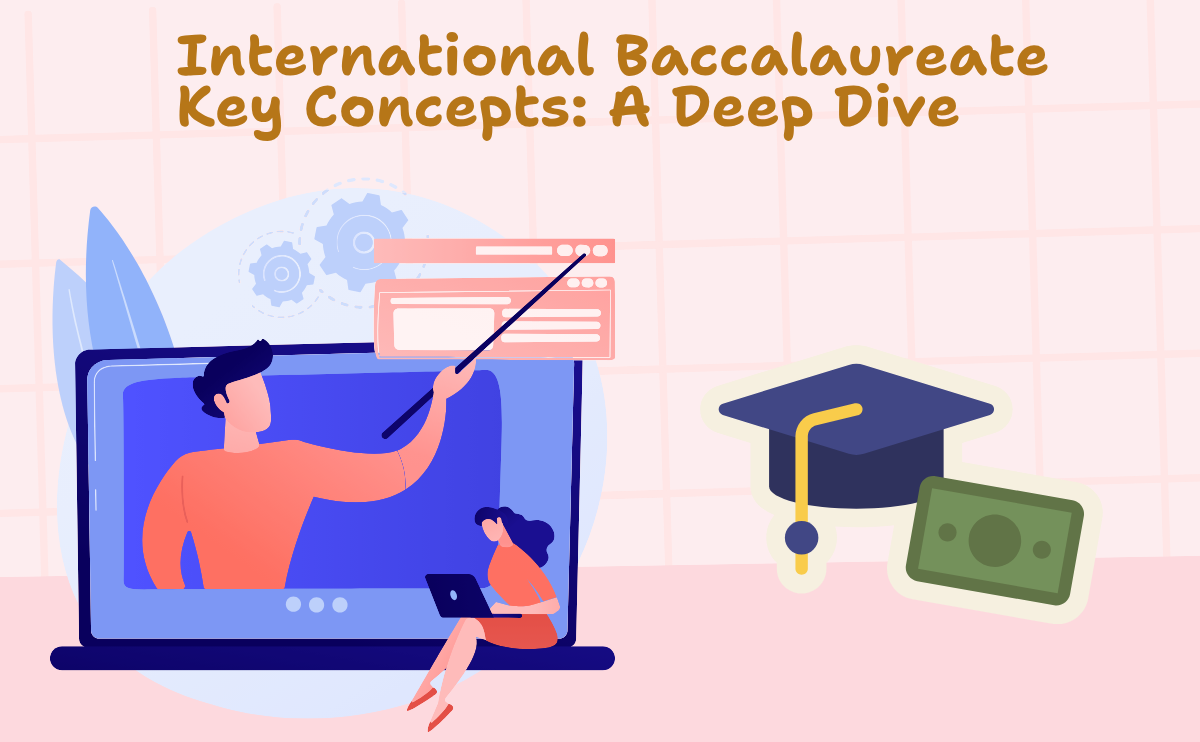OUR BLOG
International Baccalaureate Key Concepts: A Deep Dive
At the heart of the IB curriculum is the International Baccalaureate Key
Concepts. This is vital in helping students connect ideas that pan across
subjects and gets them thinking critically into becoming acutely aware
citizens on the global front. You may be a parent who is considering IB for
your child, or a student who is navigating the frameworks of IB curriculum.
You may also be an educator who is seeking clarity. Whoever you are, it is
important to understand the core ideas of the IB curriculum.
With the help of this article, you will understand what the Key Concepts in IB
are. What they do to shape the learning process in IB World Schools and
why it is of primary importance in today’s educational landscape. While we
are at it, we will help in breaking down related terms such as IB Curriculum
Meaning, IB Board Full Form, and IB Education Full Form. We will also share
with you why it is important to find the right learning support. This includes
ib tutors, ib tuition, and online ib tutor options for International
Baccalaureate students.
What Are the International Baccalaureate Key Concepts?
When you are looking at the International Baccalaureate (IB), you are
looking at a globally recognized educational framework whose main
concentration is on inquiry-based learning along with academic and
intercultural understanding. At the center of this are Key Concepts. These
are a set of ideas that go beyond individual discipline and assist students to
learn on a conceptual level. To make it simpler, we have listed the eight Key
Concepts that are used by IB students to engage in learning across subjects:
1. Form – What is it like?
2. Function – How does it work?
3. Causation – Why is it like this?
4. Change – How is it changing?
5. Connection – How is it connected to other things?
6. Perspective – What are the points of view?
7. Responsibility – What is our responsibility?
8. Reflection – How do we know?
These Key Concepts help the students stay motivated and to think beyond
the traditional method of rote learning. For instance, when the student is
attending an IB Biology tutor session, the student may have the
opportunity to explore the function of cells. While doing so, the student may
wonder about broader questions related to disease or ecological impact. This
is the multi-layered thinking that truly sets apart an IB student from the
rest.
Understanding the IB Curriculum Meaning
First thing’s first, before getting into how these concepts are applied, let us
look at clarifying the IB Curriculum Meaning. At the heart, we are looking at
IB as a framework that emphasizes global awareness, personal development
and most importantly learner-driven inquiry. The whole idea about IB
education is about engaging with big ideas, asking thoughtful questions and
understanding the ‘whys’ behind the ‘whats’…a far cry from the rote system
of learning that many are used to.
The IB Curriculum is divided into four programs:
● PYP (Primary Years Programme)
● MYP (Middle Years Programme)
● DP (Diploma Programme)
● CP (Career-related Programme)
Across all these programmes, the Key Concepts are the only constant. The
Key Concepts are embedded into lesson planning, assessments, and learning
goals. A student in a PYP classroom may learn about community or in a DP
class analyze political systems. Both these concepts are guided by the same
lens of Key Concepts.
Why Are These Concepts So Important?
The Key Concepts are vital in helping students:
● Develop deeper understanding of the subjects
● Connect learning across subjects
● Apply the knowledge learnt to real-world situations
● Think like scientists, historians, writers, and philosophers
For example, an IB maths tutor tutoring a student may help the student
look at statistics (form and function), while doing so the student may be
intrigued about reflecting on how data is used to influence public opinion
(perspective and responsibility). In the same lines an IB Physics tutor may
encourage students to consider the change and causation that goes behind
energy systems and technological innovation.
When students think at this level, they are bound to turn into lifelong
learners who are inquisitive about gaining knowledge and turn into being
compassionate leaders too.
How IB World Schools Implement Key Concepts
It is interesting to note that IB World Schools make use of these concepts to
plan units that are meaningful, rigorous, and interdisciplinary. It could be
the case where a single unit can span multiple subjects but at the same time
be tied together by a single Key Concept.
Let us learn by a quick example:
Unit Theme: Sustainability
Key Concept: Responsibility
Subjects Involved:
● Science (studying ecosystems and human impact)
● Language Arts (reading environmental nonfiction)
● Mathematics (analyzing pollution data)
● Individuals and Societies (exploring environmental policies)
When learning has this kind of approach, it not only makes learning
dynamic, but it mirrors the real world when issues are not
compartmentalized but complex and interrelated. As a student moves
forward, these concepts encourage them to understand a topic deeper. This
encourages them academically and globally too.
The subject-specific concepts are the reason that the curriculum is rich and
flexible. It even supports the use of tailored academic support such as
subject-specific ib online tutors who can integrate conceptual learning into
individual sessions.
Finding the Right Learning Support
When students move from a traditional education system to IB education,
this kind of conceptual learning can be challenging. We have listed below the
various ways in which learners are supported.
● Group sessions on core IB subjects conducted by ib tuition centers
● Flexible at-home learning offered by online ib tuition platforms
● Individualized help from experienced ib online tutors and specialists
like:
o ib maths tutor
o ib biology tutor
o ib chemistry tutor
o ib physics tutor
Tutors from Baccalaureate Class are IB graduates or trained professionals
who have a good understanding of both the subject matter and the
conceptual demands of the curriculum. What you need to know is that a
good online ib tutor does not just teach the content in their books, but
they help students ask the right questions, connect ideas, and apply their
learning to problems.
How to Find IB Support “Near Me”
Are you searching for "IB Near Me" on Google or exploring global online
platforms? Then you arrived right. Good news is that there are more
resources than ever for IB families. Baccalaureate Classes have just the
tutoring service you will need. Virtual options help make it easier to connect
with the right teacher no matter where you are.
If you are confused about what to look for, then we have it listed for you
here. You need to search for tutors:
● Who are familiar with the Key Concepts IB approach
● Who has the right experience in inquiry-based and interdisciplinary
learning
● Who are subject experts for DP and MYP levels
● Who have flexible options whether it is for one-on-one or a small
learning group
When you invest in tutoring with quality, you make sure that learners not
only perform better academically but also engage meaningfully with the
learning and check out all the boxes for which the curriculum aims.

